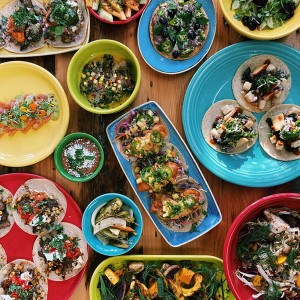Dining Out: Mysteries of the Orient
It’s been a long time since an ambitious Chinese restaurant succeeded outside Chinatown. I fear that Anise, tucked away in Cambridge, isn’t going to be the exception, though it has a high goal: to introduce diners to the subtle fire of Szechwan food, earthier and more powerful than the usual Hong Kong–Guangdong (Cantonese) style we’re used to.
It’s been a long time since an ambitious Chinese restaurant succeeded outside Chinatown. I fear that Anise, tucked away in Cambridge, isn’t going to be the exception, though it has a high goal: to introduce diners to the subtle fire of Szechwan food, earthier and more powerful than the usual Hong Kong–Guangdong (Cantonese) style we’re used to. While Anise does a busy lunch service, both nights I ate there I was one of a handful of customers.
I wound up liking Anise better than my guests did, partly because you’ve gotta root for a place that puts duck tongue and chicken heart and pork belly on the menu, and whose spunky owner says she picked Kendall Square because it’s home to the best-educated people in Boston. And partly because some of Anise’s food is very good, with vibrant, fresh flavors you simply don’t get in even Chinatown.
Zheng Hu, trained in computer science, arrived here from China at 28. She soon realized that she liked cooking and dining better than tech—and that she couldn’t find anywhere good to eat. So she opened Chilli Garden in Medford with her husband, who still runs it nightly, and won acclaim from Boston-area food mavens (Nina Simonds, the irrepressible and scholarly writer and teacher of Chinese food, is a fan).
Reasoning there was likewise “no place to eat” in Cambridge, Zheng looked for a space, and found a big bar-restaurant in the complex adjacent to the Kendall Square Cinema. The location has a reputation for being cursed, though it’s right next door to the Blue Room and the popular Cambridge Brewing Company. “I didn’t like the space because it is very isolated,” she told me. “But two American friends who lived in Cambridge a long time told me this is a killer location.” She added that after opening Anise, she had begun to think her friends might have had a different meaning of “killer” in mind.
I wanted to ask Zheng to teach Szechwan cooking classes and explain every ingredient and technique that Yujan Zhou, her Szechwan Culinary School–trained chef, was using. I wanted to sign up for them. If only she had been around the nights we visited to explain what we were eating!
But, alas, she was nowhere in evidence, and we were on our own in almost every way: finding someone to take our order, deciding what to eat, deducing what was in it once it came. The first night, we had a strikingly pretty server who told us she’d just started and didn’t really know any of the dishes—nearly all of which were unfamiliar to us and opaquely described on the menu. She also told us, after an incredibly long wait for our main courses (the only other table, for two, had already been served): Oh, the kitchen is out of the fish. Then she came back bearing the steamed bass ($18) we had ordered—never mind! Maybe we would have been better off with one less main course after all. The gloppy sauce was reminiscent of a Weight Watchers frozen dinner and the bass tasted old and fishy.
Much more memorable was the chicken broth in an oyster mushroom and chicken soup ($6), brimming with flavor and quite possibly just the thing to bring any cold-bedraggled Bostonian back to rosy health. Home-style bamboo shoots ($12) were big, beefy slices of the crunchy vegetable in a simple white sauce, tasting vaguely of birch beer. Green beans with special Szechwan black pickles ($12) were bright, and the minced pickles added peppery interest without domineering. Best of all, the salmon marinated with sticky soy sauce, garlic, and black pepper ($15) gave new life to the usually appalling fatty farmed Atlantic salmon.
But these were relatively mild dishes, meaning we had missed the point of Szechwan food, which relies on the judicious use of the right red pepper. When I spoke to Zheng, she dismissed the bass, served with a ginger-scallion sauce, as an entrée for scaredy-cats. But the few spicy dishes we did order seemed out of whack: Wild fern ($9) with “fresh” bamboo shoots (actually canned spring shoots, Zheng told me) and Chinese cilantro started bland, followed by a pepper whoosh that prompted successive sips of water. We thought the baby lamb racks ($22), listed as a Szechwan specialty and stir-fried with Szechwan cumin powder, might be very old—after one bite of the gray, greasy meat, no one took another. Too-big chunks of bright carrots and unpeeled, long-past-its-prime squash, both steamed, arrived beside each dish, uniformly cold.
But then we gave the place a second chance, and tried almost all hot items. Several struck me with their vivid flavor and sure spicing. The snow-white, tender rabbit with mashed fermented black bean sauce and hot-pepper oil ($8) was the standout, the kind of dish you travel to New York’s Chinatown to find. Yes, there are lots of bones, and they’re dismayingly small. But the meat was completely fresh; the sauce a reason to come to Anise. Zheng told me the oil, made from peppers ordered direct from Szechwan, was the restaurant’s biggest secret and differentiates it from any in Chinatown, where the peppers come from who knows where (the north, the south, Mexico, India) and just don’t have the right flavor. Even if I couldn’t distinguish the difference, I was crazy about these.
The hot crackle of the fresh Szechwan peppers came through best in batter-fried scallops with dry pepper sauce ($15), and the kick of the peppers was in masterly balance in an appetizer of “flower” tofu ($5), the tingle staying pleasantly on the lips. And we found lovely ways to cool off: an appetizer of fresh lotus root ($7), almost candied in rice vinegar with sugar but with a few chunks of red pepper and a great crunch; and tofu noodles with celery and sesame oil ($7)—wiggly, chewy noodles with the always addictive strong sesame flavor. Our Turkish-accented waiter, young and new like the one the night before, at least seemed seasoned for his age, and boned a whole striped bass in Szechwan hot basil sauce ($23) with aplomb.
But even at that far better second dinner, the shreds of meat in the duck with Chinese chives ($19) were tough, tasteless, greasy, and cool; the desserts, such as tiny, rubbery sesame dumplings ($4) in a dull, thin syrup, were a write-off; and again, no one could tell us much of anything about our orders.
Education! That’s why the owner went to brainy Cambridge, and there are plenty of new flavors worth studying at Anise. Maybe a menu—and a space—half the size, and servers with the convincing vivacity that came across all through my conversation with Zheng, can bring those students and teachers in, and keep them coming back.


